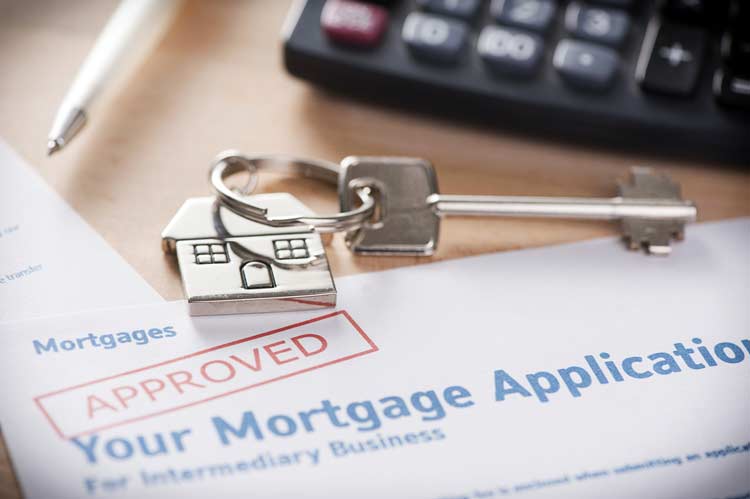Is A 40-Year Mortgage A Good Idea?
I know my grandmother, Big Mama, is looking down from heaven shaking her finger and rolling her eyes at the way the home loan market has evolved.
Big Mama would especially be shocked at the proliferation of interest-only loans in which people pay just the interest on their mortgage note – in many cases as long as 10 years.
“Hush your mouth, child,” Big Mama would say. “Have people lost their everlasting mind?”
No, Big Mama, they’re just desperate. In major metropolitan markets, especially on the west and east coasts, the prospect of owning a home is fast slipping away for many people including minorities, who already lag greatly in homeownership.
As Harvard’s Joint Center for Housing Studies points out in its “State of the Nation’s Housing” report, until 2004, falling mortgage interest rates helped to keep homeownership affordable even as prices escalated. But with long-term rates flat year over year and short-term rates rising, people will find it more difficult to buy a home.
To combat the housing affordability problem, lenders have created alternative financing, everything from hybrid adjustable-rate mortgages to interest-only loans. This is, indeed, a new era in mortgage lending.
For example, expect to see soon the mass marketing of 40-year mortgages, thanks in part to a recent announcement by Fannie Mae that it will now buy such mortgages from lenders.
In 2003, Fannie Mae, the nation’s largest source of financing for home mortgages, launched a pilot program to test if stretching people’s loan payments out an additional 10 years could help make homeownership more affordable for low- and moderate-income borrowers.
In making the announcement to lenders, Fannie Mae said that “recent changes in housing market affordability” and requests from some financial institutions led to the decision to buy 40-year loans.
“We don’t expect the 40-year mortgages to ever eclipse the 30-year in popularity,” said Sandy Cutts, spokesperson for Fannie Mae. “However, for some borrowers, we do think it will be an attractive option.”
Fixed-rate, 40-year mortgages are essentially the same as 30-year loans, but because the loan period is longer, borrowers can potentially qualify for larger mortgages with lower mortgage payments. Yet the extra 10 years means paying more interest over the life of the loan.
Since June 1, lenders have been able to sell Fannie Mae 40-year fixed mortgages as well as 40-year hybrid adjustable-rate mortgages, or hybrid ARMs. The 40-year ARMs must have initial fixed periods of three, five, seven or 10 years.
The eligibility and underwriting guidelines for 40-year loans are generally similar to those for 30-year loans. But Fannie Mae won’t buy loans secured by manufactured housing, such as mobile homes. It also won’t buy interest-only 40-year loans or those where borrowers put low down payments or none at all.
How much can you really save every month by getting a 40-year mortgage loan? And is it worth the extra 10 years of interest payments?
Rates on a 40-year fixed are likely to be 0.25 percent to 0.375 percent higher than on a traditional 30-year fixed-rate mortgage, Cutts said.
Let’s say you have a $350,000 loan and the interest rate is 6.0 percent fixed for 30 years. Your monthly mortgage payment would be about $2,098, not including taxes and private mortgage insurance. Over the life of the 30-year loan, you would pay more than $405,000 in interest. That same $350,000 loan for 40 years at a 6.25 percent interest rate would drop your monthly mortgage payment to about $1,987. However, your total interest payments would be more than $603,800.
Is the longer payment worth the savings of $111 a month?
“The feedback we have heard from lenders and credit unions is that whatever the savings is per month, it does make a huge difference,” Cutts said. “Some borrowers can use (the savings) to pay other bills.”
Still, I wonder if consumers so desperate to buy a home have resigned themselves to financial products that could keep them making mortgage payments well into old age.
The report by the Joint Center for Housing Studies cautions that creative financing may be putting some borrowers at financial risk.
Although interest-only, adjustable-rate and 40-year loans can initially result in some savings, the loans may leave borrowers vulnerable to sharply higher payments when interest rates adjust or principal payments start to become due.
Even so, a 40-year mortgage isn’t a bad product, said John Taylor, president of the National Community Reinvestment Coalition.
“People’s eyes need to be wide open in terms of what they are getting with a 40-year mortgage,” Taylor said. “If people understand the ramifications of this mortgage product, it’s another instrument to bring people into homeownership.”
If you’re interested in finding a lender that offers a 40-year loan, contact Fannie Mae’s consumer resource center toll free at (800) 732-6643. You can also go online at www.fanniemae.com and click on the “find a lender” link.
By Michelle Singletary

